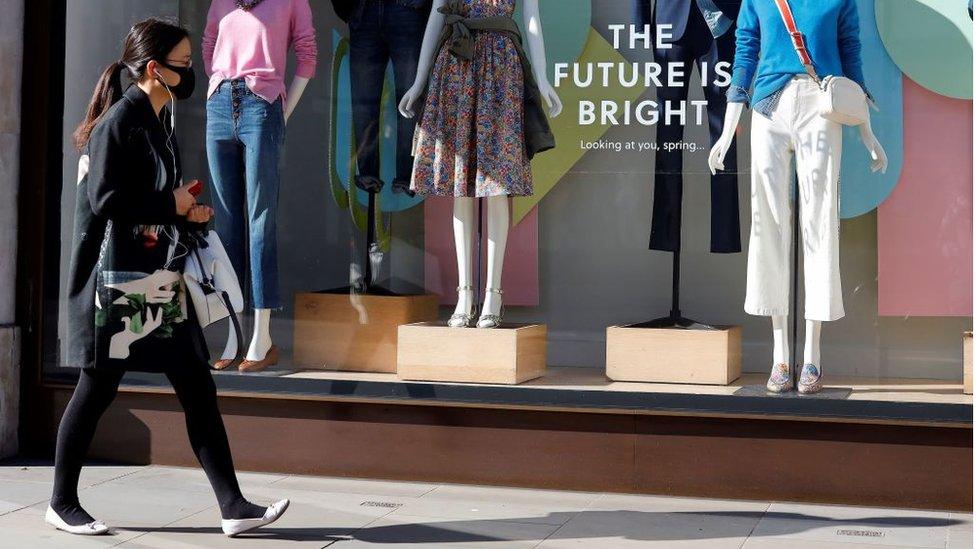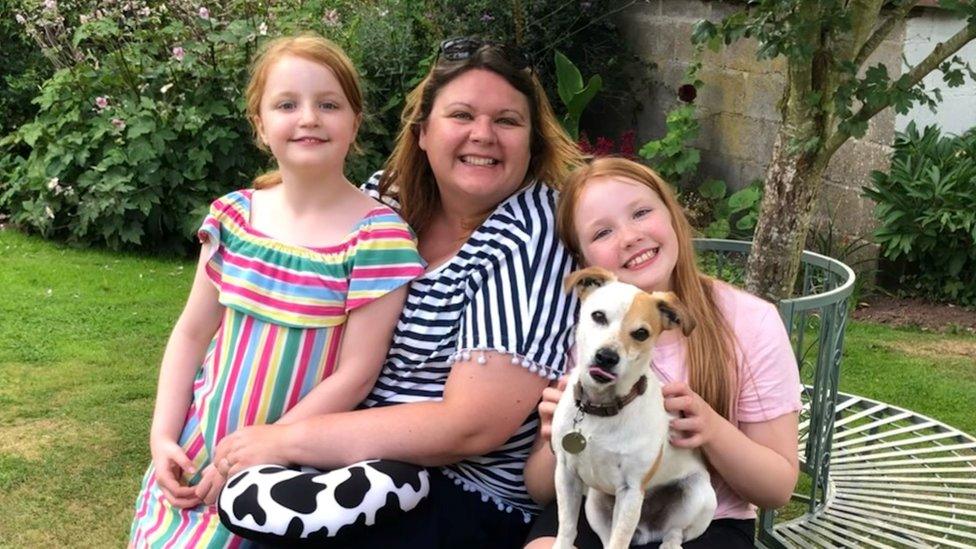Covid has 'devastating' impact on gender equality
- Published

The pandemic has had a "devastating" impact on gender equality in the workplace but there are "signs of hope", a charity has said.
The Fawcett Society said women were more likely than men to lose work or be burdened with childcare in the crisis.
But it said the virus could spur change if flexible working became the norm and dads spent more time with their kids.
The government said it was "committed to ensuring that everyone has an equal opportunity to progress".
The charity published research on the impact of Covid-19 on equality to mark Equal Pay Day - the date when women are said to effectively start working for free because, on average, they are paid less than men.
It surveyed 8,400 adults and found many women were worried about their job and promotion prospects.

The research found women were more likely to work in hard-hit sectors like hospitality
A third of working mothers reported having lost work or hours due to a lack of childcare during the pandemic.
And this rose to 44% when it came to Black, Asian and minority ethnic (BAME) mothers.
It also found that while both men and women had done more childcare since March, the gap between the amount of time mothers and fathers spent grew.
'Coronavirus crossroads'
The Fawcett society said there was a danger that the gender pay gap - the average difference in pay between men and women - would widen as a result.
And it described the UK as being at a "coronavirus crossroads" that could impact the progress of workplace equality for years.
However, it said the pandemic had also shown things could change, with fathers saying they now spent twice as much time caring for their children than at the start of the crisis.
The Fawcett Society said that if this became the norm, it could reduce the so-called "motherhood pay penalty" and cut the gender pay gap.
General secretary Sam Smethers said: "Throughout the last century, crises comparable to the pandemic have been forks in the path of history.
"The coronavirus crisis puts us at a crossroads again and it is clear that this applies to the gender pay gap."
She added: "As the government begins to look towards rebuilding the economy, it must invest in our childcare and social care infrastructure, embed flexible working and improve paid leave for dads."
'Fully committed'
Labour said progress to close the gender pay gap has slowed "significantly" under the Conservatives and, at the current pace, will not be closed until 2052.
That means women in their mid-30s now will never know equal pay in their working lives, it said.
But a spokeswoman for the Government Equalities Office said: "This government is fully committed to ensuring that everyone has an equal opportunity to progress in the workplace.
"We are aware that work in the retail, care and hospitality sectors have been particularly impacted by the pandemic and that is why we have ensured a comprehensive package of support is in place.
"As we look to unite the country and recover from the pandemic it is key that companies embrace flexible working initiatives which have a positive impact on recruitment and the productivity of staff."
- Published18 November 2020

- Published17 November 2020

- Published17 November 2020
